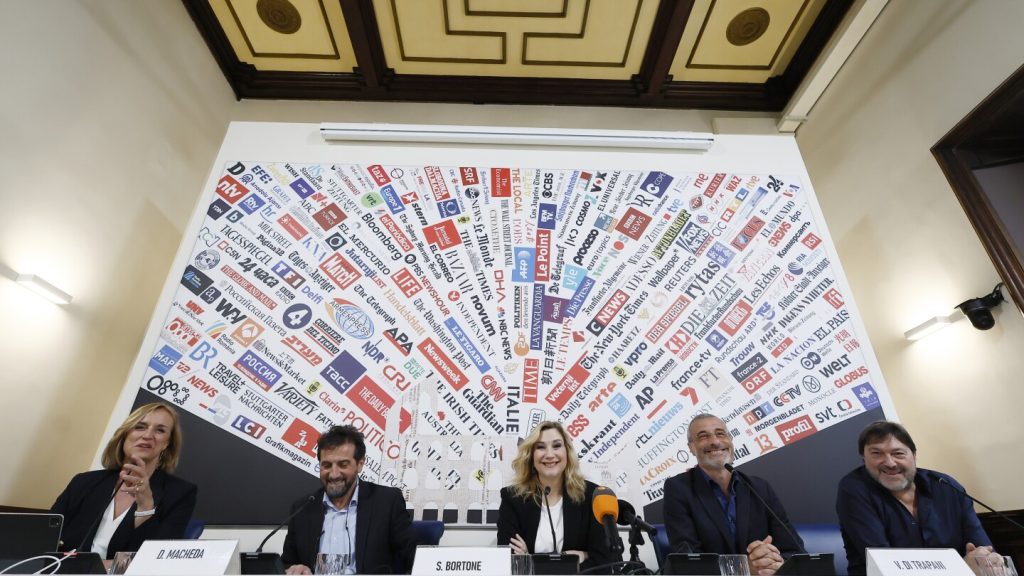The journalists at Italy’s state-run RAI went on strike to protest budget streamlining and the repressive atmosphere for media under Premier Giorgia Meloni’s government. The strike, which lasted for 24 hours, was the latest in a series of protests by Italian journalists against threats to freedom of the press and expression in Italy. Although not all journalists participated, RAI newscasts were still airing in a reduced form. RAI has stated that it is working towards transforming itself into a modern digital media company and cannot make new hires, but it is committed to safeguarding the values of pluralism and freedom of expression.
Italy recently received criticism from the media watchdog group Reporters Without Borders, as it was downgraded five notches in the index of press freedom. This downgrade placed Italy in the “problematic” category alongside other EU members such as Poland and Hungary. The proposed acquisition of Italian news agency AGI by a lawmaker of the League party, a coalition partner in Meloni’s right-wing government, was also cited as a concern. Last month, AGI journalists went on strike to protest the proposed sale from state-controlled ENI, further adding to the tension in the media landscape.
Both RAI television journalists and RAI radio journalists have been protesting company budget tightening, including hiring freezes, job eliminations by attrition, and staff reorganization. They believe that the streamlining efforts are aimed at reducing RAI to becoming a mouthpiece for the government. Daniele Macheda, the secretary of the union USIGRAI, expressed his concerns about the situation in Italy, calling the AGI case a symptom of a system that risks undermining free and independent information, a crucial asset of democracy.
RAI was in the spotlight for an alleged episode of censorship when it canceled a planned monologue by an antifascist writer on April 25, the day Italy commemorates its liberation from fascist rule. The text was critical of Meloni, whose party has ties to Italy’s neo-fascist movement. RAI cited financial reasons for canceling the contract, but critics viewed it as an act of censorship. Meloni herself has criticized RAI’s investigative reporting and publicly attacked the network over a program about a migration deal with Albania. Journalists have expressed concerns about the use of defamation lawsuits or criminal complaints by politicians and businesspeople to silence investigative reporting.
In recent weeks, the editor of the Domani newspaper, Emilio Fittipaldi, was summoned to answer questions by members of Italy’s anti-mafia parliamentary commission regarding a criminal probe into media leaks about top politicians. Three Domani journalists are currently under criminal investigation by prosecutors in Perugia for their reporting on Meloni’s defense minister, facing the possibility of jail time if convicted. These incidents have further fueled concerns about the state of press freedom and freedom of expression in Italy, prompting journalists to push back against what they perceive as government interference in media operations. The future of independent journalism in Italy remains uncertain as journalists continue to fight for their rights and freedoms in the face of increasing challenges.


